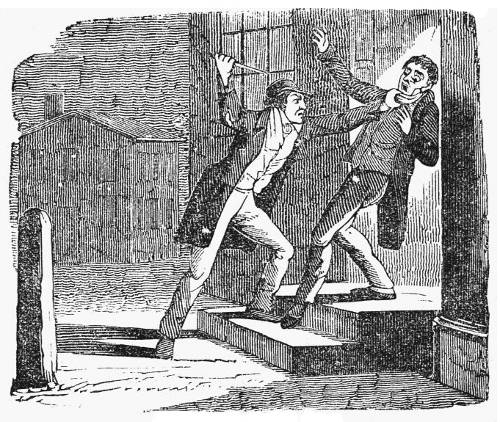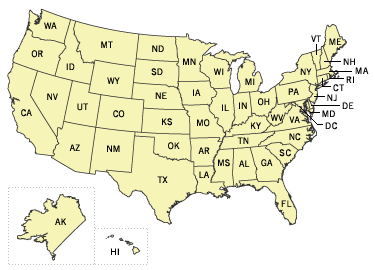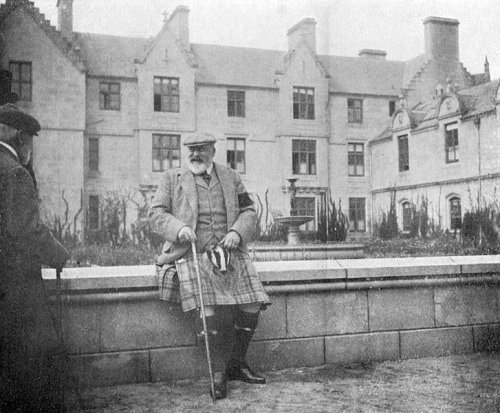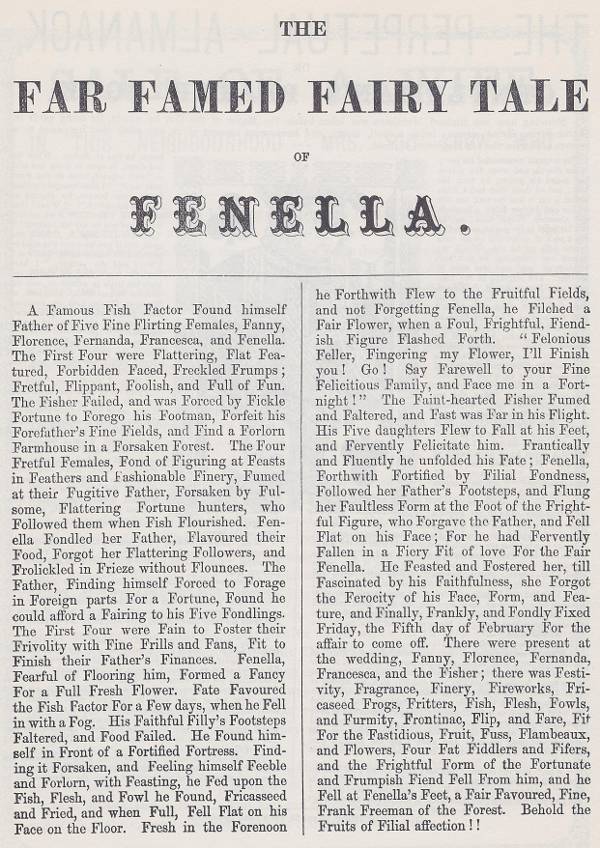
sectile
adj. capable of being cut easily with a knife

sectile
adj. capable of being cut easily with a knife
The following ‘True Copy of a Jury taken before Judge Doddridge, at the Assizes holden at Huntingdon A.D. 1619,’ may amuse our readers. The Judge had in the preceding circuit censured the Sheriff for impannelling men not qualified by rank for serving on the Grand Jury, and the Sheriff being a humourist, resolved to fit the Judge with sounds at least. On calling over the following names and pausing emphatically at the end of the christian, instead of the surname, his lordship began to think he had indeed a jury of quality.
The Judge, it is said, was highly pleased with this practical joke, and commended the Sheriff for his ingenuity. The descendants of some of these illustrious Jurors still reside in the County, and bear the same names; in particular, a Maximilian King we are informed still presides over Toseland.
— The News Magazine, August 1864

Why do we say “The United States is” rather than “The United States are”? The founding fathers tended to use are — in 1783 John Adams wrote, “The United States are another object of debate,” and the 13th Amendment declares that slavery shall not exist “within the United States, or any place subject to their jurisdiction.”
The standard answer is that the Civil War established the country as a unified nation in the modern consciousness. In 1887 a writer in the Washington Post declared that the war had “settled forever the question of grammar. … The surrender of Mr. Davis and Gen. Lee meant a transition from the plural to the singular.” “Since the civil war the tendency has been toward such use,” confirmed John W. Foster in the New York Times in 1901.
It’s not quite so simple, of course — authoritative writers can be found who used is before the war or are afterward. William Cullen Bryant banned the singular use from the New York Post in 1870, and Ambrose Bierce was pressing for the plural as late as 1909. (In 1881 New Englander C.H.J. Douglas proposed “The United State of America,” but he got nowhere.)
But the standard answer is essentially true. “The rebellion made the State rights and State sovereignty idea very obnoxious to loyal people, and gave corresponding prominence and popularity to the idea of nationality,” observed the New York Times in 1895. “The United States is, not are,” concluded Carl Sandburg in 1958. “The Civil War was fought over a verb.”
Read the first letter of each sentence of the preface of Transport Phenomena, a 1960 chemical engineering textbook by Robert Bird, Warren Stewart, and Edwin Lightfoot, and you’ll discover the message THIS BOOK IS DEDICATED TO O.A. HOUGEN.
In the second edition, the initial letters of successive paragraphs spell the word WELCOME.
In the afterword, they spell ON WISCONSIN.
A bookworm in Kennebunk, Me.,
Found pleasure in reading Monte.,
He also liked Poe
And Daniel Defoe,
But the telephone book caused him pe.
There’s a girl out in Ann Arbor, Mich.,
To meet whom I never would wich.
She’d gobble ice cream
Till with colic she’d scream,
Then order another big dich.
As he filled up the order book pp.,
He said, “I should get higher ww.”
So he struck for more pay,
But alas, now, they say,
He is sweeping out elephants’ cc.

aprication
n. basking in the sun

typhlophile
n. a helper of the blind
I was recently told the following story of a piece of silverware now existing in the plate-room at Marlborough House. One day the Prince of Wales, on alighting from his carriage at the door of a house where he was about to pay a visit, saw a blind man and his dog vainly trying to effect a passage across the thoroughfare in the midst of a throng of carriages. With characteristic good-nature the Prince came to the rescue, and successfully piloted the pair to the other side of the street. A short time afterwards he received a massive silver inkstand with the following inscription:– ‘To the Prince of Wales. From one who saw him conduct a blind beggar across the street. In memory of a kind and Christian action.’ Neither note nor card accompanied the offering, and the name of the donor has never been discovered. But I think that this anonymous gift is not the least prized of the many articles in the Prince’s treasure chamber. I can vouch for the authenticity of this anecdote, as it came to me direct from a young English lady who, by the kindness of a member of the Prince of Wales’ household, was shown through Marlborough House during the absence of its owners, and the inkstand in question was pointed out to her by her conductor.
— Unsigned article, The Australian Journal, January 1893
Surprisingly natural palindromes:
E.L. Fletcher proposed a telephone conversation:
“No! … Too bad! … Ah! I was never, ever, even tired! … Now, is Eire very sordid? … Oh! Won’t I? … Did I? … Was I not up, spot on? … I saw no shell! … I saw it! … I did! I? … Fired? … No wonder! … It saw dad was well left … I sat, rapt! … I did? … Won’t i? … No! … Red? … No! … Prevent it? … Never! … Ponder on it now! … Did it part as it fell? … Lew saw dad was tired … No wonder, if i did it! … I was ill, eh, son? … Was i? … No tops put on, I saw … I did it? … No? … Who did? … Rosy reveries? I wonder! … It never, ever, even saw I had a boot on! …”
Willard Fiske in the Chess Monthly, 1857:
Cherished chess! The charms of thy checkered chambers chain me changelessly. Chaplains have chanted thy charming choiceness; chieftains have changed the chariot and the chase for the chaster chivalry of the chess-board, and the cheerier charge of the chess-knights. Chaste-eyed Caissa! For thee are the chaplets of chainless charity and the chalice of childlike cheerfulness. No chilling churl, no cheating chafferer, no chattering changeling, no chanting charlatan, can be thy champion; the chivalrous, the charitable, and the cheerful, are the chosen ones thou cherishest. Chance cannot change thee: from the cradle of childhood to the charnel-house, from our first childish chirpings to the chills of the church-yard, thou art our cheery, changeless chieftainess. Chastener of the churlish, chider of the changeable, cherisher of the chagrined, the chapter of thy chiliad of charms should be chanted by cherubic chimes, and chiseled on chalcedon in cherubic chirography.
In 1974, Judge H. Sol Clark of the Georgia Court of Appeals rendered judgment thus in Banks vs. State:
“Literary license allows an avid alliterationist authority to postulate parenthetically that the predominating principles presented here may be summarized thusly: Preventing public pollution permits promiscuous perusal of personality but persistent perspicacious patron persuasively provided pertinent perdurable preponderating presumption precedent preventing prison.”
An English broadside from C. Hindley’s Curiosities of Street Literature (1871):

ecdemolagnia
n. lustfulness when one is away from home